Mustain Billah
A Systematic Study and Analysis of Bengali Folklore with Natural Language Processing Systems
Mar 13, 2022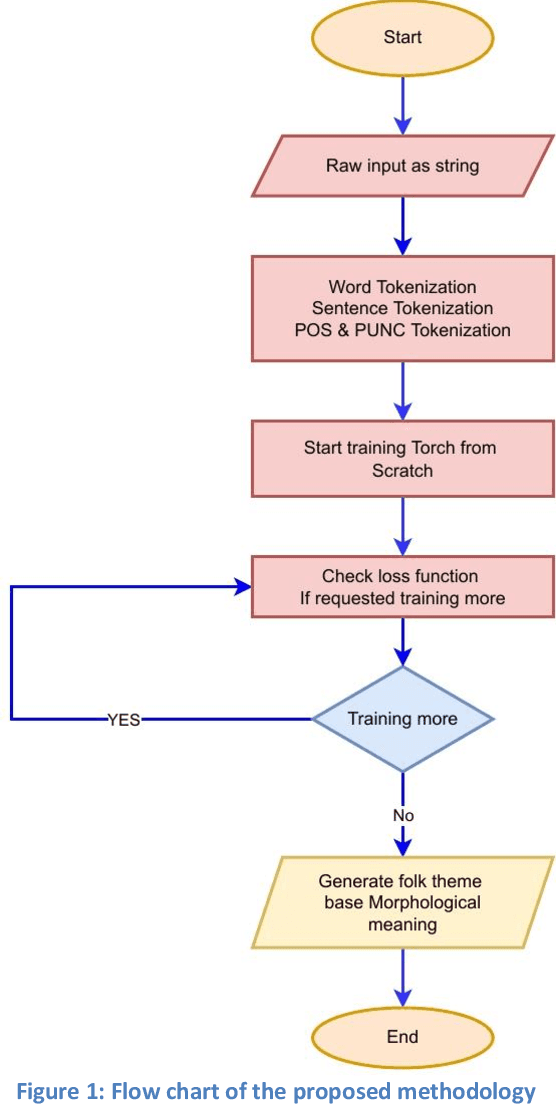
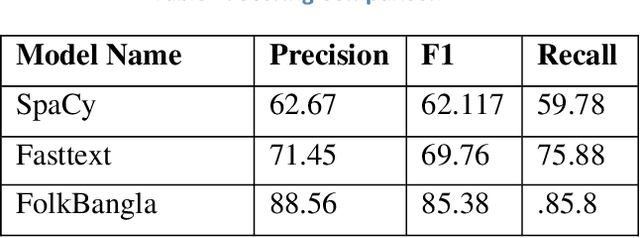


Abstract:Folklore, a solid branch of folk literature, is the hallmark of any nation or any society. Such as oral tradition; as proverbs or jokes, it also includes material culture as well as traditional folk beliefs, and various customs. Bengali folklore is as rich in-depth as it is amazing. Nevertheless, in the womb of time, it is determined to sustain its existence. Therefore, our aim in this study is to make our rich folklore more comprehensible to everyone in a more sophisticated computational way. Some studies concluded various aspects of the Bengali language with NLP. Our proposed model is to be specific for Bengali folklore. Technically, it will be the first step towards Bengali natural language processing for studying and analyzing the folklore of Bengal.
A Systematic Literature Review on Blockchain Enabled Federated Learning Framework for Internet of Vehicles
Mar 10, 2022
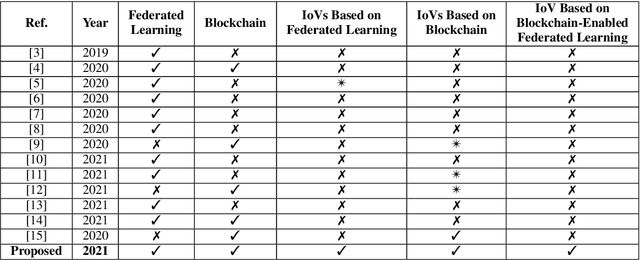
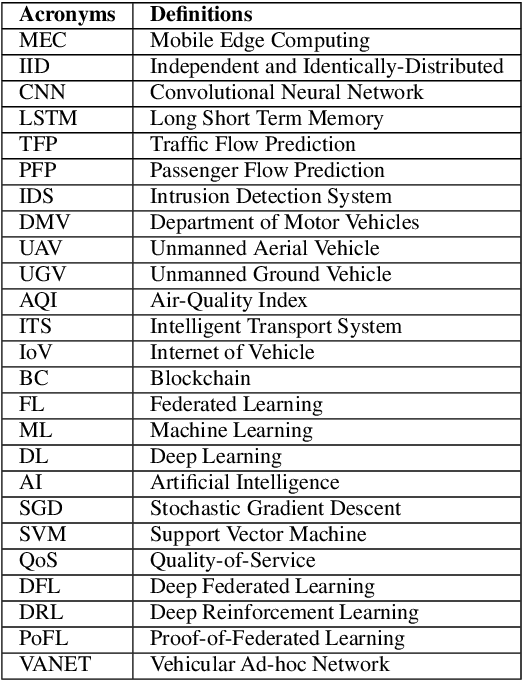
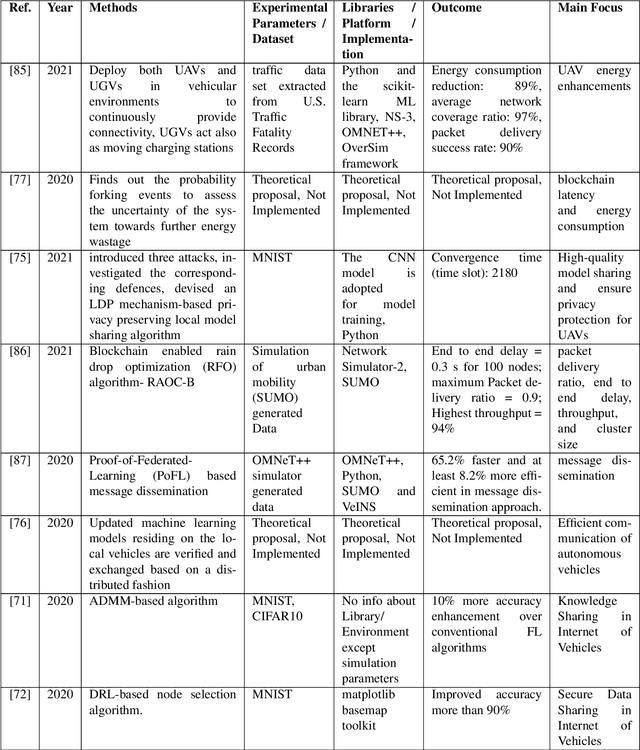
Abstract:While the convergence of Artificial Intelligence (AI) techniques with improved information technology systems ensured enormous benefits to the Internet of Vehicles (IoVs) systems, it also introduced an increased amount of security and privacy threats. To ensure the security of IoVs data, privacy preservation methodologies have gained significant attention in the literature. However, these strategies also need specific adjustments and modifications to cope with the advances in IoVs design. In the interim, Federated Learning (FL) has been proven as an emerging idea to protect IoVs data privacy and security. On the other hand, Blockchain technology is showing prominent possibilities with secured, dispersed, and auditable data recording and sharing schemes. In this paper, we present a comprehensive survey on the application and implementation of Blockchain-Enabled Federated Learning frameworks for IoVs. Besides, probable issues, challenges, solutions, and future research directions for BC-Enabled FL frameworks for IoVs are also presented. This survey can further be used as the basis for developing modern BC-Enabled FL solutions to resolve different data privacy issues and scenarios of IoVs.
Bi-Level Poisoning Attack Model and Countermeasure for Appliance Consumption Data of Smart Homes
Jul 01, 2021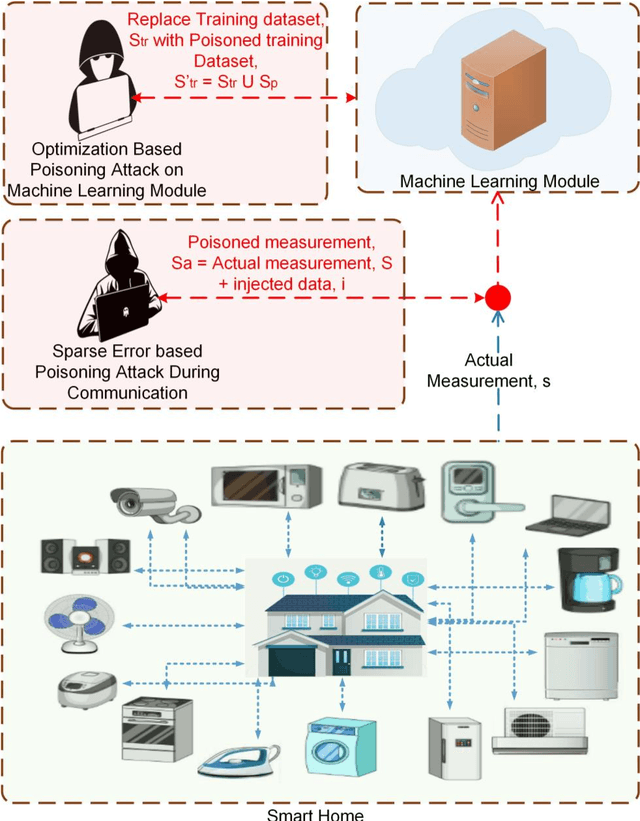
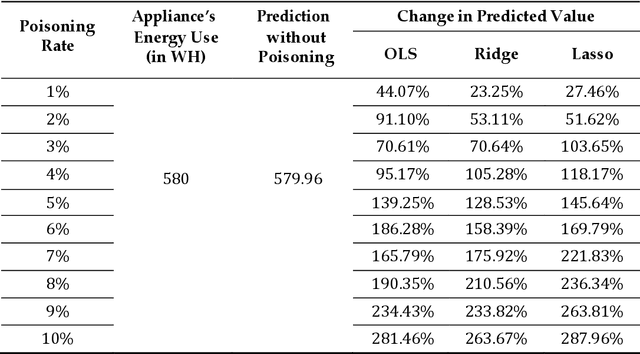
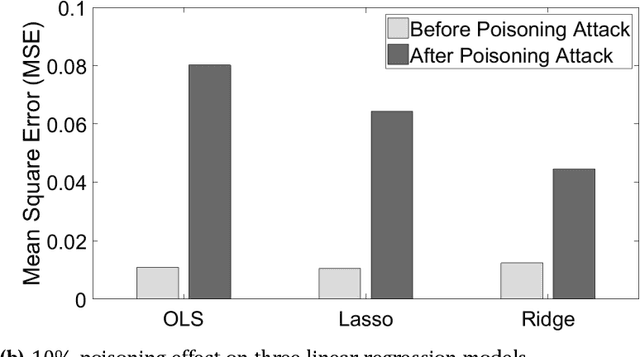
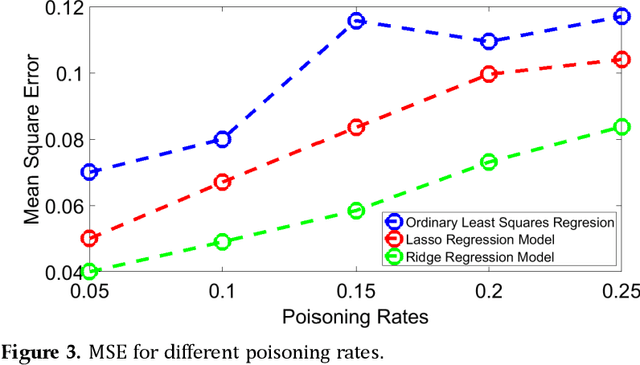
Abstract:Accurate building energy prediction is useful in various applications starting from building energy automation and management to optimal storage control. However, vulnerabilities should be considered when designing building energy prediction models, as intelligent attackers can deliberately influence the model performance using sophisticated attack models. These may consequently degrade the prediction accuracy, which may affect the efficiency and performance of the building energy management systems. In this paper, we investigate the impact of bi-level poisoning attacks on regression models of energy usage obtained from household appliances. Furthermore, an effective countermeasure against the poisoning attacks on the prediction model is proposed in this paper. Attacks and defenses are evaluated on a benchmark dataset. Experimental results show that an intelligent cyber-attacker can poison the prediction model to manipulate the decision. However, our proposed solution successfully ensures defense against such poisoning attacks effectively compared to other benchmark techniques.
* 17 Pages, 7 Figures, 1 table
 Add to Chrome
Add to Chrome Add to Firefox
Add to Firefox Add to Edge
Add to Edge